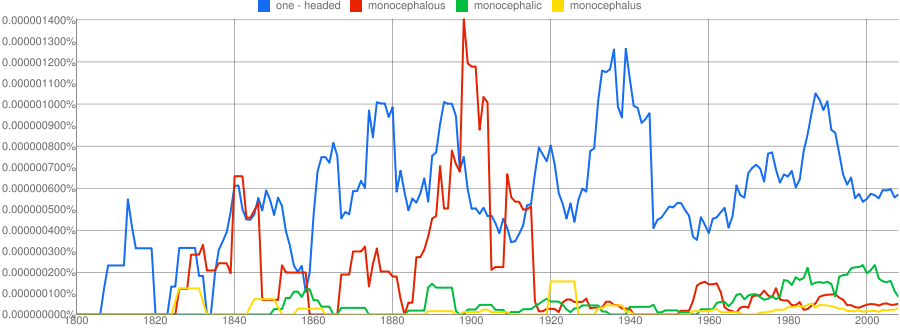Is there a word for a person with only one head?
Hire the world's top talent on demand or became one of them at Toptal: https://topt.al/25cXVn
and get $2,000 discount on your first invoice
--------------------------------------------------
Take control of your privacy with Proton's trusted, Swiss-based, secure services.
Choose what you need and safeguard your digital life:
Mail: https://go.getproton.me/SH1CU
VPN: https://go.getproton.me/SH1DI
Password Manager: https://go.getproton.me/SH1DJ
Drive: https://go.getproton.me/SH1CT
Music by Eric Matyas
https://www.soundimage.org
Track title: Puzzle Game 2 Looping
--
Chapters
00:00 Is There A Word For A Person With Only One Head?
01:20 Accepted Answer Score 92
02:46 Answer 2 Score 37
03:21 Answer 3 Score 9
03:37 Answer 4 Score 23
04:33 Thank you
--
Full question
https://english.stackexchange.com/questi...
--
Content licensed under CC BY-SA
https://meta.stackexchange.com/help/lice...
--
Tags
#singlewordrequests #neologisms #construction
#avk47
ACCEPTED ANSWER
Score 92
The point that a word should make is that it has to be an adequate symbol for what it represents.
This is, in essence, arbitrary and pragmatic and what ever work (as a symbol) will make its way into memories and experience of individuals, then a subculture (jargon) and then culture (spreading from common spoken use to use in periodical publications to the moment these words are added to dictionaries).
It can follow patterns from Greek or Latin, and you will find many example in this and last century — we had to invent many new words to deal with advance of information technology.
If you read up on neologism you will find other ways of constructing new words mentioned — combining existing words (regardless of etymology), abbreviating, rhyming, etc..
urban dictionary almost exclusively shows neologisms (even fictional)
Here you can see new words in journals
You can also look at lists of words added to a dictionary, such as this sample from Merriam-Webster
As you examine these lists you will see progression from less adopted words to more standard words and you might see some patterns that make them accepted into the language.
EDIT:
- There is polycephaly - which refers to general condition of having more then one head
- In case of words prefixed with poly-, the usual counterpart is mono- and so your best bet is monocephaly
After I constructed the word, I looked it up and it exists:
mon·o·ce·phal·ic
Bearing one flower head, as in the scape of a dandelion.
ANSWER 2
Score 37
A variant would be monocephalous:
- Having only one head; in botany, bearing a single capitulum or head.
- Specifically, having the character of a monocephalus.
or monocephalus:
– noun
- In teratol., a double monster having only one head but two bodies. Also called syncephalus.
See also syncephalus:
– noun
- In teratology, a double monster with more or less fusion of the heads: same as monocephalus.
ANSWER 3
Score 23
We don’t have a specific word yet for people with one head, but botanists and other similar scientists have long needed such words. Google Ngrams shows that one-headed, monocephalous and monocephalic have all been used significantly over the years. (Edit: bill weaver points out in comments that single-headed is indeed more frequent than any of these.) Monocephalus also appears, but only very rarely as an English noun: it seems to always be either in scientific names of plants, or else a typo for monocephalous. Unicapital, monocephalon, and various other variations I tried found no hits.
Speculating, I think one-headed would probably dominate everyday use. As a noun-form, one-head is obvious, but could easily become pejorative/derogatory; one-headed person/people would then be the politically correct phrase. Monocephalous would, like many similar classical formations, remain mostly associated with medical usage.

ANSWER 4
Score 9
How about something like "unicapital".
From unus L. one + capitis L. head
The unicapital inhabitants of the Sol System consume comparatively few facial tissues.